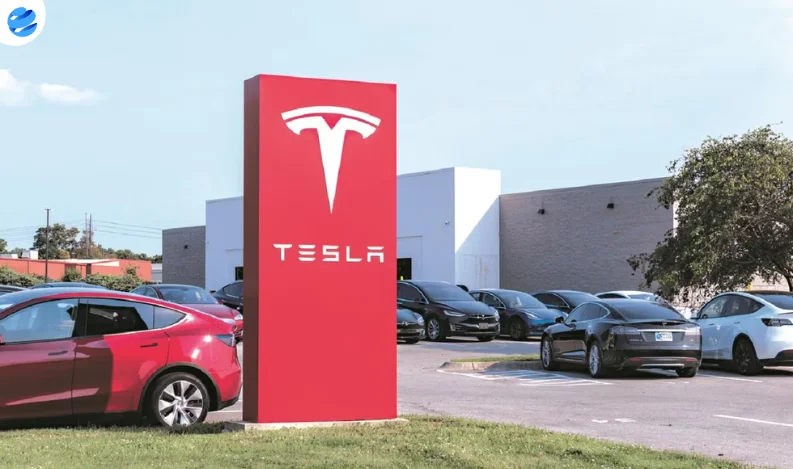Tesla Inc. has suffered a dramatic decline in new vehicle sales across several of its key European markets in April, with latest figures revealing a steep 80.7% drop in Sweden—its worst performance since October 2022. Similar contractions were also recorded in Denmark and France, where sales plummeted by 67.2% and 59.4%, respectively, highlighting growing challenges for the U.S. electric vehicle (EV) maker in the continent.
The data reflects Tesla’s fourth consecutive monthly sales slump in France, and follows a broader 28.2% decline in its European market performance in March, according to automotive registration data compiled by national agencies.
Surging Chinese EV Brands Undercut Market Share
Industry analysts attribute the plunge to a surge in competition from Chinese EV manufacturers, who are aggressively expanding across Europe with competitively priced models and growing dealership networks. Brands like BYD, Nio, and MG Motor have steadily chipped away at Tesla’s market share, offering buyers attractive alternatives at lower price points.
“The European EV market is becoming increasingly crowded, and Tesla no longer holds the same first-mover advantage it once did,” noted an analyst from Mobility Sweden. “Affordability and availability are key, and Chinese brands are delivering on both.”
Political Controversy Sparks Protests and Vandalism
Compounding Tesla’s market woes is a political storm swirling around CEO Elon Musk, whose outspoken support of far-right political views in Europe has triggered backlash from progressive consumer segments.
Across multiple European cities, protests have erupted outside Tesla showrooms, and instances of vandalism at charging stations and retail outlets have been reported both in the U.S. and Europe.
“There is a growing perception that buying a Tesla is making a political statement, and that’s affecting the brand’s image in parts of Europe,” said a Frankfurt-based EV market consultant.
Lowest Registrations in Sweden Since 2022
In Sweden, Tesla recorded its lowest monthly new car registrations since October 2022, when only 43 vehicles were sold. This underscores how the company’s Scandinavian appeal—once a stronghold of eco-conscious early adopters—is rapidly eroding.
The continued decline in France marks an especially troubling trend, as the country is Europe’s second-largest EV market. April’s figures represent Tesla’s fourth consecutive monthly sales contraction in France, suggesting deeper brand fatigue or consumer shift.
Traditional Carmakers Mount a Comeback
Beyond Chinese competitors, legacy European automakers such as Volkswagen, BMW, and Mercedes-Benz are also increasing pressure on Tesla with their expanding range of EV offerings—often bundled with local service support, incentives, and deep market familiarity.
What Lies Ahead for Tesla in Europe?
With the European EV landscape evolving rapidly, Tesla now faces a critical inflection point. While the company continues to dominate in some global markets, its European operations may require a strategic reset—focusing on local partnerships, pricing adjustments, and brand rehabilitation.
Analysts warn that without addressing both pricing pressure and reputational concerns, Tesla risks losing long-term ground in a region that remains a global leader in EV adoption.























